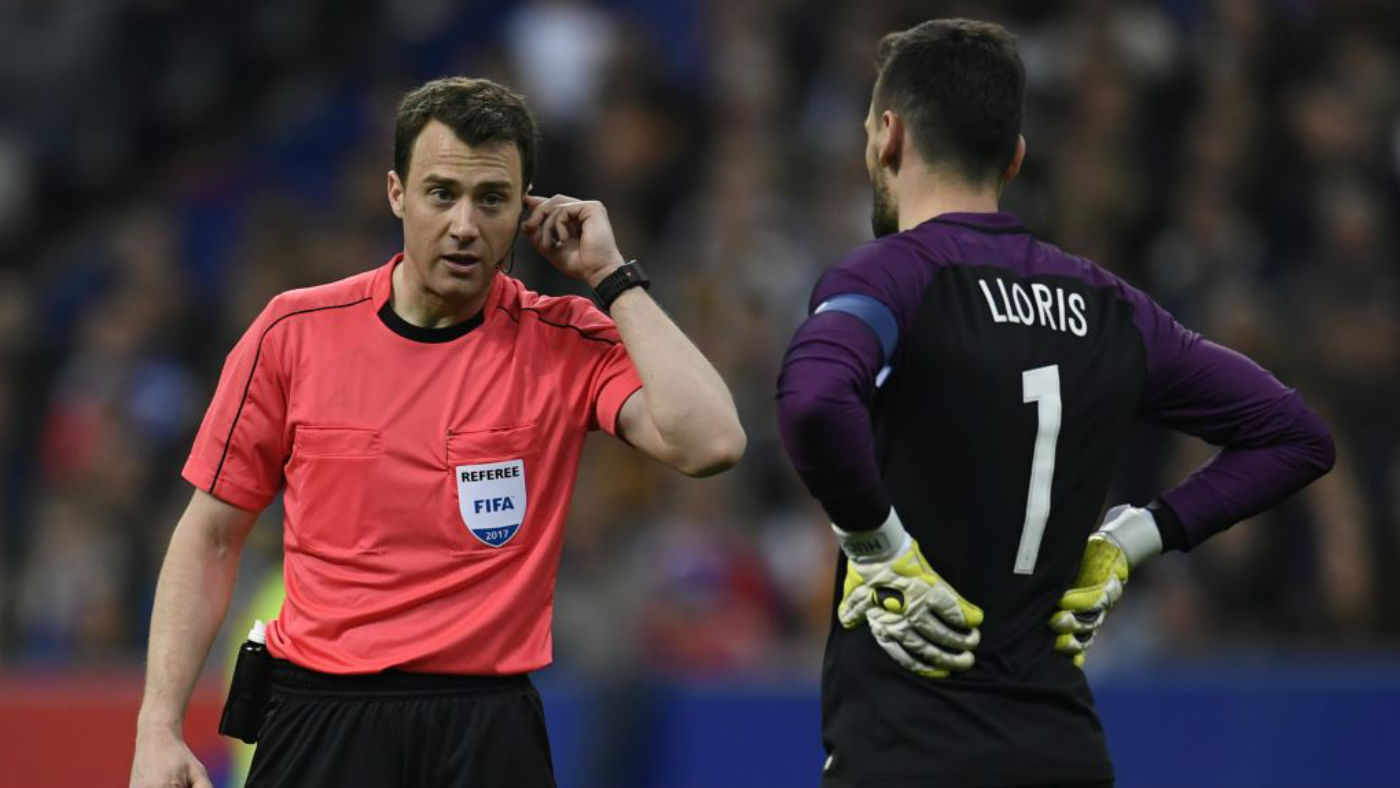Video referees have arrived - but what now for managers?
VAR hailed as a success, but it gives France's Didier Deschamps nothing to complain about after defeat to Spain

A free daily email with the biggest news stories of the day – and the best features from TheWeek.com
You are now subscribed
Your newsletter sign-up was successful
Calls are growing for Fifa to roll out video referees and consider using it at the 2018 World Cup in Russia after the technology celebrated a "landmark" game this week.
Tuesday night's match between France and Spain was the latest trial for the video assistant referee [VAR] and it had a significant role to play, with German referee Felix Zwayer twice referring match-changing decisions to the man in the booth.
It saw a goal for France striker Antone Griezmann ruled out for being offside and then a Gerard Deulofeu goal allowed to stand after initially being ruled out.
The Week
Escape your echo chamber. Get the facts behind the news, plus analysis from multiple perspectives.

Sign up for The Week's Free Newsletters
From our morning news briefing to a weekly Good News Newsletter, get the best of The Week delivered directly to your inbox.
From our morning news briefing to a weekly Good News Newsletter, get the best of The Week delivered directly to your inbox.
"Those reviews put the efficacy of the VAR system under the spotlight in front of a worldwide audience and it passed with flying colours," says Peter Staunton on Goal.com.
The time it took for each decisions to be overturned "was 40 seconds that effectively brought the game of professional football kicking and screaming into the bright lights of the 21st century", says Martyn Ziegler of The Times.
"The two game-changing decisions in such a high-profile international must have ended any doubts about the practicalities of using video replays. Had the VAR not been there, the match would have ended in a 1-1 draw instead of 2-0 to Spain."
It is hoped that in time, the VAR will be able to make decisions even faster, perhaps in only 20 seconds, but for now the results are still impressive.
A free daily email with the biggest news stories of the day – and the best features from TheWeek.com
Its success represents a "huge step forward for the game - even if some will take that step a little tentatively", says Miguel Delaney of The Independent.
He does mention one unforeseen result: defeated French coach Didier Deschamps "had very little to say" in his post-match interview because "there was nothing much to talk about".
The VAR had done his job and he could not quibble. "That sense of a vacuum is probably just down to having to adjust," says Miguel. "But it would be healthy for the entire game to adjust to a reality where refereeing decisions are not seen as the primary factor in every single result."
Despite its success this week, "there are still some issues to be worked through", says Staunton of Goal.com. Germany's team of officials had been trained on the system, which must be used correctly.
Added to that, Fifa cannot afford to unleash "a situation where every single marginal call is referred to a VAR for a second opinion", he says. "Only major decisions can be analysed and only the referee may call for a review."
There are also issues of interpretation. "There are two different types of incidents that come under review – subjective ones such as fouls and factual decisions such as offsides," Staunton writes.
Meanwhile, there is the impact on the other officials to consider, he warns. Assistant referees may be unwilling to flag offside because they realise their call will be reviewed if it is marginal and a goal is scored, while stopping play will rob the attacking team of their advantage.
Nevertheless, the VAR appears to be on course for a debut at the 2018 World Cup. Fifa is expected to make a decision in March 2018.